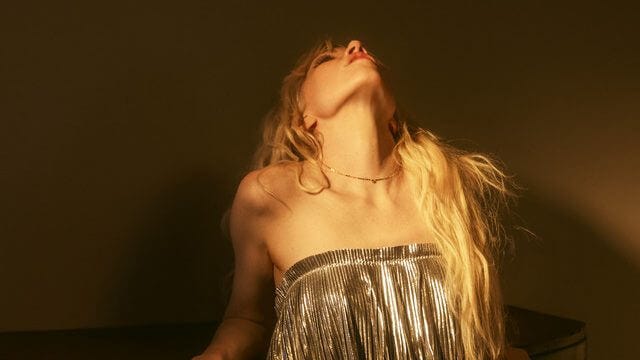Album Review: Carly Rae Jepsen 'The Loveliest Time'
Jepsen delivers something lovely, with some strange turns along the way.
It sure is a lovely time to be a Carly Rae Jepsen fan. Fresh off last fall’s triumphant, albeit melancholic The Loneliest Time, Jepsen returns with the album’s version of her traditional ‘side b.’ Since 2015’s Emotion, Jepsen has made a tradition of releasing a ‘Side B,’ containing tracks leftover from her latest album. This time though, the ‘Side B’ label doesn’t adorn the body of work like Emotion: Side B and Dedicated: Side B. Instead, she properly titles it as a companion piece that is meant to stand on its own. Welcome to The Loveliest Time.
Jepsen moved seemingly quickly to bring The Loveliest Time into the world. She dropped the album’s lead single “Shy Boy,” on June 23rd. She confirmed the album was to follow on July 6, and announced the July 28th release date on July 13th. “Shy Boy,” which she initially started work on over a decade ago, perhaps serves as the best taste of the album. It’s different, yet, it works. The chorus has a nursery rhyme cadence, which fits in perfectly over the disco-wahing synths of the record. Under Jepsen’s thumb, she molds the nursery rhyme hook into a sexy, half-whispered, ‘come hither.’ It has her essence, but it’s just unique enough to hint at the experimentation that follows throughout the album.
The Loveliest Time as a whole might just be the strangest body of work Jepsen has produced to date. Like The Loneliest Time, she explores genres beyond her brand of bubbly, effervescent, and electro-fueled pop. Those elements are still at the heart of the album, but she incorporates other, often unexpected genres including neo-soul, jazz, and even drum-and-bass.
Opening cut “Anything To Be With You,” is brassy like a Stax soul record. It builds on a jazzy/soul break while Jepsen professes her unrelenting affection and desperation for her partner. She’s willing to compromise, and amidst chants of “never over” offers to be friends with his friends and get sad when he’s sad. It’s not the typical, grandiose, electro pop-rooted and hook-fueled Jepsen opener a la the vulnerable “Surrender My Heart,” yearning “Julien,” or the indisputable, adoring glory of “Run Away With Me.”
From there, the album unfolds in a strange, even incongruous fashion. She skirts a fine line with the more form-fitting “Kamikaze,” the baffling drum-and-bass of “After Last Night,” and the mellow, yet saccharine “Aeroplanes.” It’s a journey getting through the first half, to say the least.
After the first listen, it feels like the album’s sequencing is incorrect. A rumored “correct” sequencing suddenly brought the album together in a more logical form. The perplexing “After Last Night” made for a stronger (and stranger) opening cut, and the deeply personal, equally unique neo-soul of the deeply personal “Kollage” closed the album and seems to tie it together perfectly. The “correct” tracklist made sense. And then it turned out that the original tracklist was, in fact, the right one. It makes for quite the conundrum. Coupled with the strange availability of track 13, “Weekend Love,” which is available worldwide digitally, but excluded from all physical pressings except Japan’s, it’s confusing. Is it disrupting the album more to resequence it, or to accept a sequence that feels incorrect?
What is right are the tracks where she is most in her element, which largely fall in the second half of the album. Dueling late-night-hookup cuts “So Right” (produced and co-written by her new beau Cole Marsden Greif-Neill), and “Come Over” are quintessential Carly, especially the latter, which is as strong as previous side B cuts “The One,” and “Solo.” “Whatever you’re scheming, I’m already dreaming,” she sings alluringly. It’s the ultimate ‘come fuck me’ jam. “Psychedelic Switch,” which precedes the two hookup cuts, further leans into the disco flavor which has proven to serve her well (especially on Loneliest’s “Shooting Star”). “It’s like my whole life now is making sense,” she proclaims on the trippy, discofied foot-stomper. How much of that did she dose? Because it’s definitely hitting right.
Penultimate cut “Put It To Rest” is a surprise standout. The song speeds along like a pivotal movie scene where a car careens down a dark, winding road. “Put it to rest so the rest won’t follow me,” she repeats like a mantra over the extremely cinematic and dramatic piano and drums. It’s an ominous implication of some heartbreak, but simultaneously feels like a crucial component in reaching the album’s titular experience. There’s no loveliest time without releasing the not-so-lovely. There’s similar grandiosity in the physical version’s closing cut, “Stadium Love.” She pushes her voice to its absolute limits as she belts out the song’s “hey you” chorus over a quintessential Jepsen pop arrangement, with some rock flourishes. Despite some strange moments along the way, Jepsen delivers something lovely on The Loveliest Time. No more, no less.
Stream Carly Rae Jepsen’s The Loveliest Time




